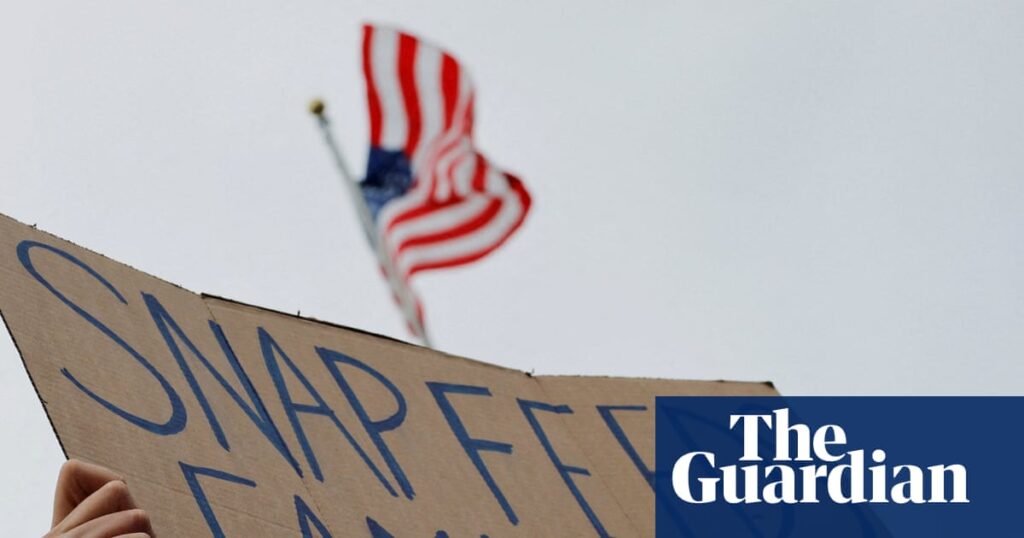A federal judge in Rhode Island on Friday afternoon blocked the Trump administration from suspending all food aid for millions of Americans amid the ongoing government shutdown, in a case brought by a group of US cities, nonprofit organizations and a trade union.
And at almost the same time, in a separate but similar case, a federal judge in Massachusetts ruled that the government must continue to fund the program that helps low-income households stave off food insecurity, in a case brought by the Democratic attorneys general from 22 states and the District of Columbia and three governors who sued the administration.
John McConnell, a US district judge in Providence, issued a temporary restraining order in the Rhode Island case at the behest of those plaintiffs. . They had argued the US Department of Agriculture’s suspension of Supplemental Nutrition Assistance Program benefits, known as Snap or food stamps, that was due to kick in on Saturday, was unlawful.
The USDA has said insufficient funds exist to pay full benefits to 42 million low-income Americans, as issuing food stamps costs the public purse between $8.5bn and $9bn every month.
The Trump administration contends the agency lacks authority to pay them until Congress passes a spending bill that will ending the enduring government shutdown that began on 1 October.
The plaintiffs in the civil case being heard in Rhode Island are represented by the liberal legal advocacy group Democracy Forward. The group argued that the federal government’s decision to suspend the nutritional benefits was wrong and unlawful, as the USDA still had funds available to fulfill its obligation to fund the Snap program.
Such available funding includes $5.25bn in contingency funds that Congress has previously provided for the USDA to use when “necessary to carry out program operations”, the plaintiffs said.
Aside from the contingency funds, the plaintiffs argued that a separate fund with around $23bn in it could also be utilized to avoid what would be an unprecedented suspension of Snap benefits.
In the Massachusetts case, US district Judge Indira Talwani in Boston gave the administration until Monday to say whether it would partially pay for the benefits for November with contingency money or fund them fully with additional funds.
It wasn’t immediately clear how quickly the debit cards that beneficiaries use to buy groceries could be reloaded after the ruling. That process often takes one to two weeks.
The rulings are likely to face appeals.
Reuters and the Associated Press contributed reporting.


